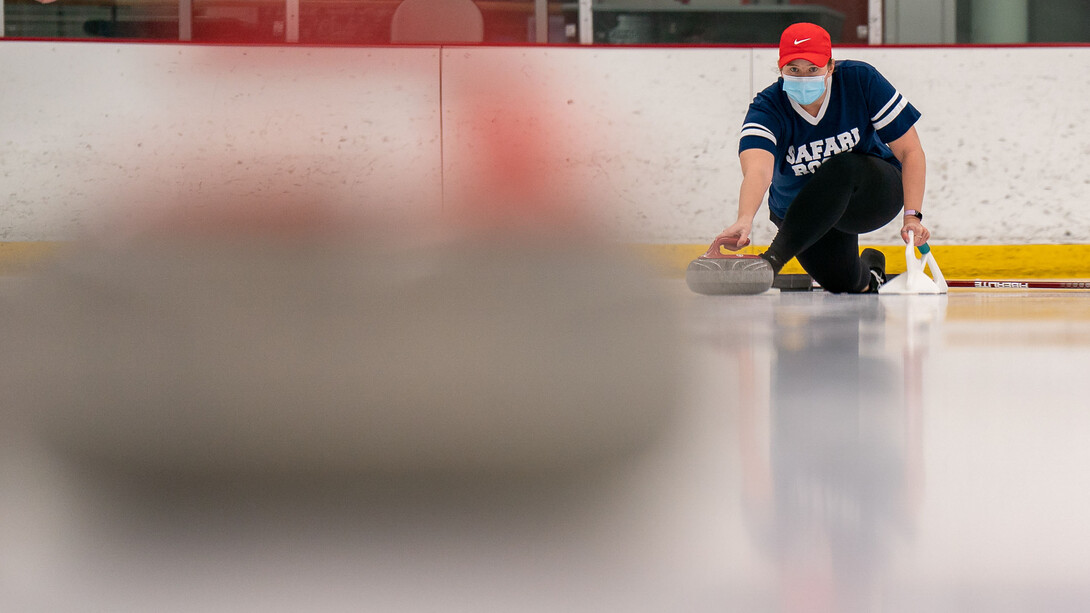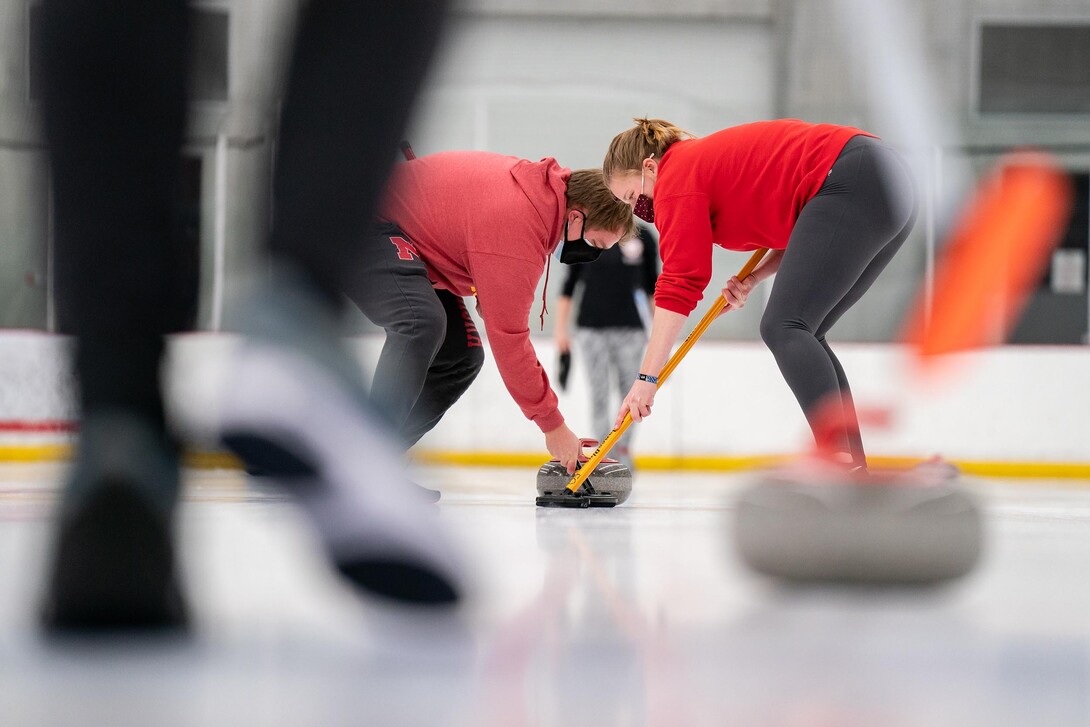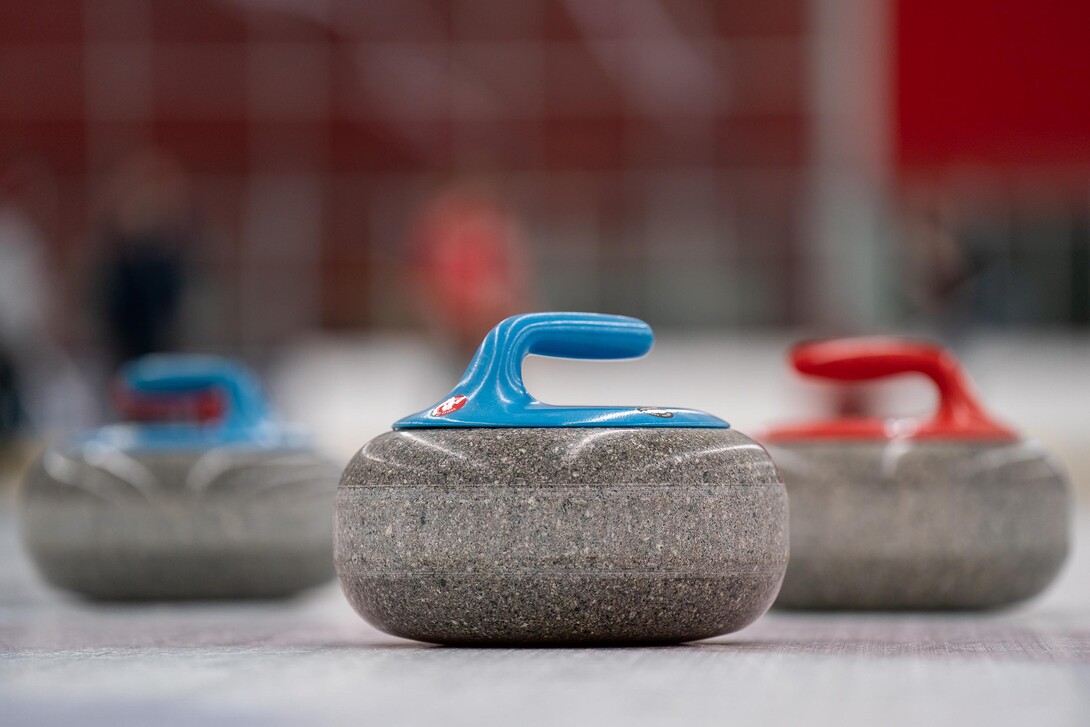
The sport of curling requires particular focus and skill to push a 44-pound granite stone toward a target 46 meters away on ice.
And yet, the University of Nebraska-Lincoln’s curling team welcomes any student interested in playing, with or without experience.
The team of 12 curlers and head coach Nancy Myers prioritize inclusion as part of the traditions of curling — respect, socialization and playing at any age. Though 10 students joined with no experience, the team recently qualified for the 2022 College Curling Championship in Fargo, North Dakota, from March 11-13.
In teaching new students how to curl, Myers combines her knowledge from a lifetime of curling with the support of the team’s upperclassmen or experienced curlers. Through consistent practice and a positive team environment, the team successfully integrates players.
The basic movement in the game is for one player to push and release the stone straight down the ice toward the “house,” or target at the end. Meanwhile, two players use brooms to sweep the ice in front of the stone, causing it to “curl” left or right, or slow down and speed up as it approaches the house. Standing near the house, another player called a “skip” calls out directions.

The toughest part of learning to curl, according to Myers, is finding balance. In that initial push, the player’s balance determines how well the stone places relative to the house. Achieving balance using a strong core and stable legs is a skill that new curlers have never mimicked before but learn through patience and the support of their teammates and coach.
“What’s really exciting is most of these students come in and they have never curled before,” Myers said. “What’s the most exciting thing is to see how they pick up the game, and they’ve become really good curlers.”
Senior psychology major Sam Lydiatt joined the team her freshman year with no experience after watching Team USA compete in the 2018 Winter Olympics. She approached the curling team booth at an RSO fair and joined soon after. Now, she’s fallen in love with the sport over the past four years and plans to be a lifelong curler.
While Lydiatt joined because the strategy and movements of the game interested her, she and many other team members have stuck around because of the positive, social culture on Nebraska’s team.
Often between attempts to push the stone down the lane, Husker players will compliment each other on their shots. Any critiquing comes with care and respect, especially for players who joined the team with no prior experience. And while they’re setting up for practice, teammates ask each other how their day has been.

“Curling is competitive when it needs to be, but informal most of the time,” said teammate Paul Suder, a freshman philosophy and biological sciences major.
Curling also has a history of being a “gentleperson’s sport,” according to Lydiatt, meaning players prioritize respect and praise for teammates and opponents over harsh competition. Practices and tournaments prioritize the social aspect of the game, like with special traditions such as “broomstacking,” which involves teams going out after a tournament to get to know each other.
Myers hopes more students become interested in the unique sport. In the past, the team has hosted a “Learn to Curl” event where students can drop in and try the sport. The event hasn’t happened recently due to the COVID-19 pandemic, but the team hopes to host one again soon.
“I see college students as the future of curling,” Myers said. “And curling is unique in that it’s a lifelong sport. It’s not like hockey where it takes a lot of physicality. Curling is a family environment, and I’ve met some great friends through curling.”








